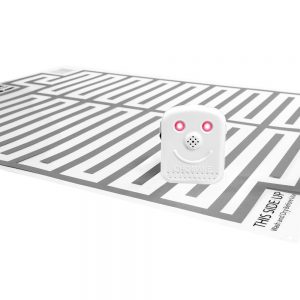Bed Wetting
In this article:
Bed Wetting – What is it?
Finding themselves in wet bed and soiled sheets every morning is extremely stressful for bed wetting children. Even if parents tackle the problem with love and patience, bedwetting at age 7, 8, 9, 10 or above, children who wet their beds, feel ashamed and embarrassed. These bed wetting children report lower self-esteem and live in the constant fear of their siblings who might tease or provoke the bed wetting child, and the pressure of their friends discovering their secret. The constant social pressure often creates negative feelings in children.
As a parent you cannot magically eliminate these feelings, but, yes, here are few things you can do to reduce the effect of such emotions to minimum.
Bed Wetting Is Common
Many children who are bedwetting at age 7, 8, 9 10 or above feel that they are the only ones who wet their beds. Assure your child that there are many more children, and even teenagers who wet the bed. Also, inform your child if you or your partner wet the bed as children. Web MD reports “Children whose parents did not wet the bed have a 15% chance of being bed wetters, which goes up to 44% if one parent wet the bed and rises all the way to 77% if both parents wet the bed as children.”
Help Your Child Feel in Control
Bed wetting often gives a feeling of helplessness and low self-esteem. Let your child feel that he or she is in control of the situation. Sit down and discuss the bed wetting treatment options and bed wetting solutions. For e.g. tell them of options such as medication and bed wetting alarms. Explains the pros and cons of each choice and involve them in the decision. Work with your child to create a journal and develop a mechanism to track his or hers progress such as number of dry nights in a week.
Explain to your child how the bladder works, and let him or her visualize how it gets filled with all liquid he or she consumes, and then put his or her smart brain at work, and let your child develop a plan to increase bladder control.
Make your Child Responsible
Involve your child in the cleaning up process, but make sure that your child’s understand that it is not a punishment. So, be emphatic, but keep your tone calm. Teach your child to change and soak the soiled bedding and/or do the laundry.
Make the Trip to Bathroom Easy
Some children who are bedwetting at age 7, 8, 9 10 or above are scared of the dark, and might feel discouraged to use the restroom. So, place lights in the hallway and in the bathroom to make the nighttime trip to the restroom easier. It is also a good idea to assist your child in using the restroom for first few nights and then gradually encourage the child to go independently.
These tips will not stop or magically stop bed wetting, but, they come handy if your child is battling self-image issues because of bed wetting.
Bed Wetting Family Do’s and Don’ts
Bed wetting is challenging childhood situation. Here are few family do’s and don’ts that might come handy as you deal with bed wetting.
Do’s
- Bring the family on board: Your child needs not just your support, but support of the whole family. Educate yourself and other family members about bed wetting and the steps you will be taking to address it. Remember you child will need constant encouragement and love to overcome this common, but stressful childhood problem.
- Be Sensitive: Understand that bed wetting is more embarrassing and taxing for your child than it is for you. So, be calm and protect your child’s feelings. Ensure that no siblings provoke or ridicule your bed wetting child. Sensitize the siblings toward the challenge the young bed wetter is facing.
- Consistent Bedtime Routine: Establish a consistent bedtime routine such as fixed dinner time, having fixed amount of fluid at bed time or using the bathroom twice before bed.
- Speak to a Pediatrician: Talk to a doctor. Have him/her evaluate your child’s history and rule out any possible medical reasons for bed wetting. Bedwetting at age 7, 8, 9 10 or above can be prevented.
- Get a bed wetting alarm: Make the investment. It’s worth it. Bed wetting alarms are the most effective treatment options available. The alarm systems are equipped with a moisture sensitive sensor that triggers the alarm system as soon as it detects urine. The alarm wakes the child up to use the restroom and finish urinating. If you are worried about the cost, most insurance companies cover the cost of the bed wetting alarms and the money you save on disposable pants, pull ups, detergents will soon cover the cost of the alarm.
- Track Progress: Most bed wetting alarms like the Chummie Premium Bedwetting Alarm come with a progress chart. Make use of it and record your child’s progress such as the number of bed wetting incidents in a week, number of dry nights, the time that alarm went off etc.
- Use a waterproof mattress pad:. Four popular varieties include quilted waterproof mattress pads, reversible waterproof mattress pads, bamboo waterproof mattress pads and disposable waterproof mattress pads. Mattress pads come in various sizes. Be sure to compare waterproof mattress pads before purchasing one.
- Motivate your Child: Appreciation and rewards would keep your child going even if he or she feels discouraged. Depending on your child’s age consistently reward your child.
- Try an Over Night Trial: Once your child has been dry for sometime do an overnight trial test. Send your child off to a close and trusted relative such as grandparents. Your child will learn to sleep away from home and not worrying about bed wetting. Equip your child with disposable mats and underpants.
Don’t ‘s
- Avoid Punishments: Never, Ever punish your child! As a parent you might be irritated and frustrated with your child wetting the bed. But bed wetting is involuntary. So, be patient and deal with it.
- Don’t Give Up: During his or her journey to dryness, your child will achieve few milestones as well as suffer a few setbacks. At first he or she may not respond to the alarm system or any other treatment you choose. But don’t give up and be persistent.
- Don’t Go Public: Don’t share your child’s bed wetting problem even with a close relative without talking to your child, as it might make them socially awkward the next time those relatives are around.
Bed Wetting: It’s Not Your Fault
As a parent of child who is bedwetting at age 7,8,9,10 or above, you might think something is wrong with you or your child because he or she continues to wet the bed even, while your friend’s two years old has perfectly mastered bladder control. Well, think again. You are not the only one with a bed-wetting child. According to the National Sleep Foundation’s 2003 Sleep in America poll, 14% of preschoolers and 4% of school-age children wet the bed a few nights per week or more and 21% of preschoolers and 7% of school-aged children do so once a week or more.
Take the burden off your shoulders and don’t blame your child because bed-wetting is involuntary. There are many reasons that could lead to bed-wetting varying from hereditary to medical to psychological.
Here is a quick check list.
- Revisit and think if you or any of child’s first relative was a bed wetter.
- Is your child is a deep sleeper? Well, if yes, then get a bed-wetting alarm unit that combines sound and vibration, and a moisture sensitive sensor that detects urine immediately and triggers off the alarm.
- Evaluate if your child has reached bladder maturation.
- Does your child have normal bowel movement? Closely watch if he or she is pooping everyday because constipation is a vital cause of bed wetting.
- Although rare, medical issues such as unitary tract infections, sleep apnea, diabetes, spinal cord problems could be causing bed wetting.
- Be aware of any psychological anxiety your child might experience because of moving, death of loved one, separation or divorce of parents, and new school.
Being a parent you would find it hard to see your child go through bed wetting that usually affects your child’s self-esteem. So, take a pause and assess what might be the causing bed wetting.
Knowing the cause would make finding the solution and working with your child lot easier. The solution or treatment option might be a combination of bed-wetting alarms, medication, disposable undergarments and waterproof bedding. But whatever you choose, remember your love and support is most important to your child. Don’t punish or criticize. Educate yourself on the problems and challenges of bed-wetting and bring your whole family together to help the young bedwetter.
Bed Wetting & Parental Support
Road to dryness is a tough one. It has many bumps and hurdles. Your child may find it hard to tread on this road, but, you can make this ride easier with your love and parental support. Here’s how you can do it.
- Self-Awareness: Educate yourself. You will be surprised to know that bed wetting is more common than you think. Web MD states that in “a class of 30 children, as many as six kids may wet the bed.”
- Provide Information: Explain to your child what bed wetting is and how their bladder works. Tell them it’s involuntary and not their fault. You can read books together. The Bed wetting Depot carries a vast selection of books. Check them out!
- Share Experiences: Tell your child if you or an aunt or uncle went through bed wetting. Sharing stories will help your child connect with you and not feel alone.
- Parental Support: Listen to your child. Empathize. Don’t ridicule or blame them as you would end adversely affecting.
- Offer Solutions: You know the problem. You have done your research. Now, talk to your child’s doctor and tell him or her the symptoms, and come up with a treatment plan. For e.g. you could check out different bed wetting alarm systems and/or medication . Bed wetting alarm systems include an alarm unit and moisture sensor. The sensor detects urine immediately and alarm goes off waking up the child to use the bathroom. Chose from wearable bed wetting alarms, bedside bed wetting alarms and wireless bed wetting alarms. Check out Chummie Premium Bed wetting Alarm that comes equipped with one drop detection technology. Visit our best bed wetting alarm page or compare bed wetting alarms for more information.
- Be determined: Perseverance is the key. As you tread on the path of dryness you will encounter many setbacks. For e.g. if your child fails to respond to an alarm system during the first few nights. Don’t give up hope. Switch on the alarm every night and start monitoring your child’s progress. In a few nights you will see your child will start waking up as soon as alarm goes off, and gradually wouldn’t need the alarm at all.
Overcoming bed wetting is not easy. But your constant effort and parental support would keep your child motivated and keep your child’s spirits high even when he or she feels discouraged.








 Our #1 Top SellerIdeal for Daily Use
Our #1 Top SellerIdeal for Daily Use Premium Quality BeddingSoft and Comfortable
Premium Quality BeddingSoft and Comfortable Premium Quality BeddingLarge Urine Absorption
Premium Quality BeddingLarge Urine Absorption AFFORDABLE PRICECHANGE DAILY AS NEEDED
AFFORDABLE PRICECHANGE DAILY AS NEEDED
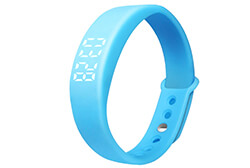 Sleek, Stylish and Affordable Watch
Sleek, Stylish and Affordable Watch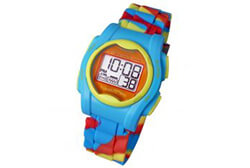 Multi-Function Watch with Numerous Features
Multi-Function Watch with Numerous Features Recommended watch for teens and adults
Recommended watch for teens and adults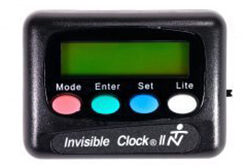 Perfect for medication and other reminders
Perfect for medication and other reminders





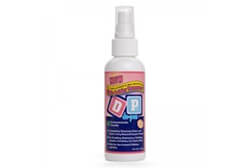


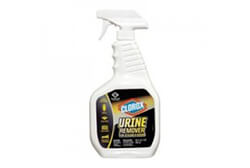

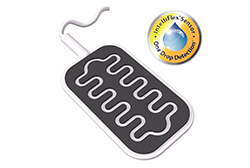
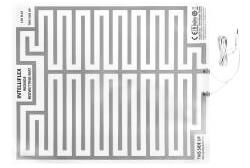

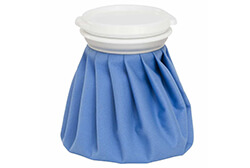

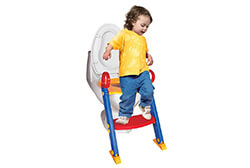
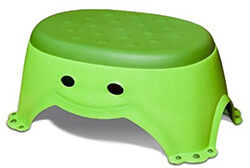
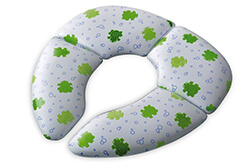
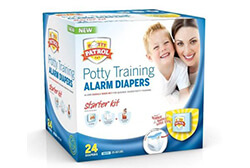









 Children
Children Play Alert Tones
Play Alert Tones Why buy from us
Why buy from us LARGE SELECTION
LARGE SELECTION EFFECTIVE ALARMS
EFFECTIVE ALARMS FAST SHIPPING
FAST SHIPPING SPECIALIST SUPPORT
SPECIALIST SUPPORT



